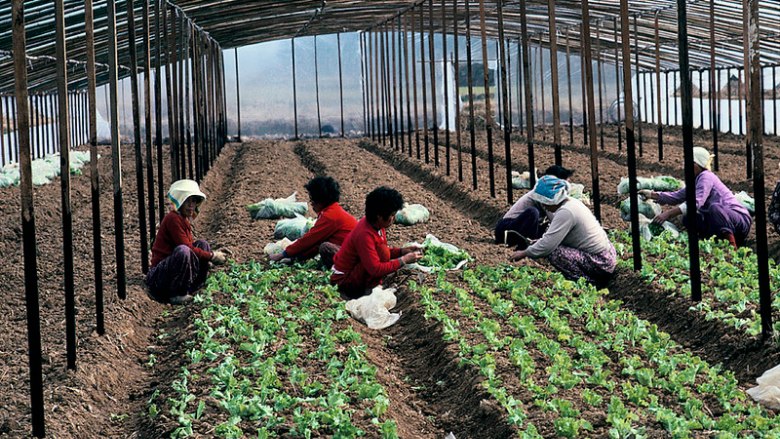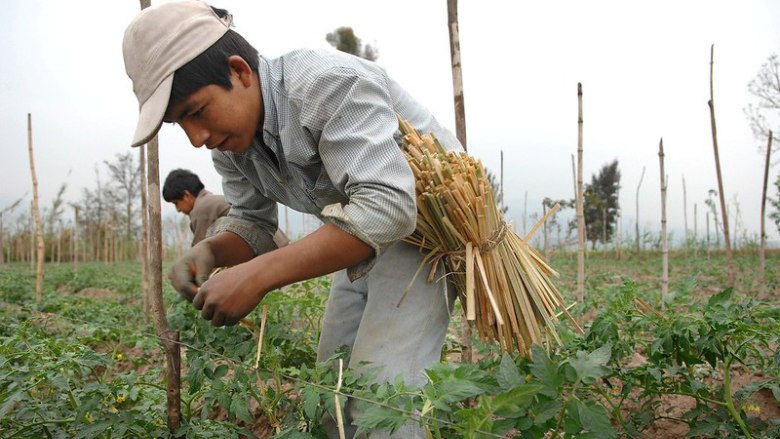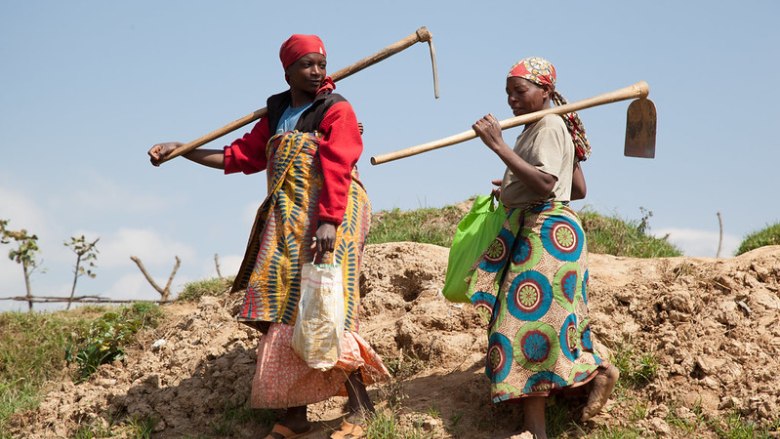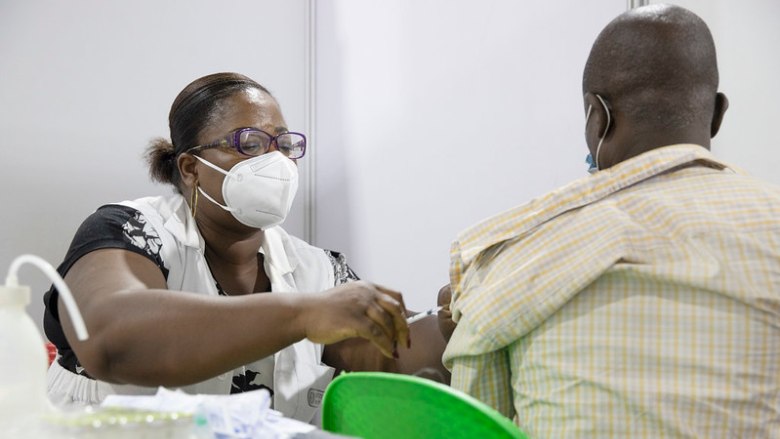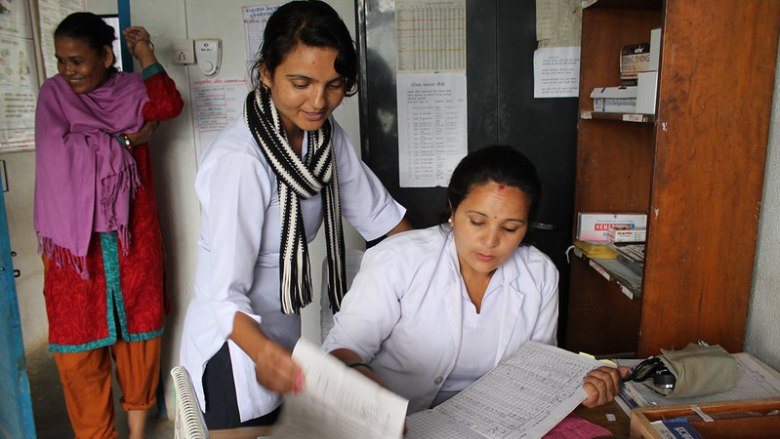Agriculture

-
Agribusiness Leadership ProgramE-Learning | Agribusiness and Value Chains | For Government Officials and Small Agricultural Enterprise Leaders
The Agribusiness Leadership Program (ALP), delivered by the International Finance Corporation, strengthens the business management capacity of small agribusinesses in smallholder supply chains through assessment, training, and coaching. It offers a blended learning approach that combines in-person support with access to 78 digital courses hosted on the WBG Academy platform, organized into eight learning journeys. By completing the digital learning component, agribusiness leaders and staff gain essential skills to improve operations, ensure sustainability, and align with the new standard for professional farmer organizations created by International Organization for Standardization (ISO 18716).
-
Sustainable Agricultural Banking ProgramE-Learning | Agriculture & Financial Services | For Government Officials
This course explores the World Bank’s Sustainable Agricultural Banking Program, which seeks to increase financing for sustainable agriculture in Forest Carbon Partnership Facility and BioCarbon Fund Initiative for Sustainable Forest Landscapes jurisdictions. It covers how value chain financing can support agri-enterprises while promoting forest protection and reducing greenhouse gas emissions. Participants will learn how the program drives smart investments to address environmental and agricultural challenges.
-
Shining a Brighter Light — Data-Driven Evidence on Adoption and Diffusion of Agriculture Innovations in EthiopiaE-Learning | Digital Agriculture | For Government Officials
This course examines the agricultural sector in Ethiopia, focusing on its growth and international research collaboration. It highlights 18 agricultural innovations adopted by smallholders, poor households, and young and female farmers, integrated into the Ethiopian Socioeconomic Survey. The course shows how these innovations promote inclusive agricultural development and contribute to poverty reduction.
-
AgTech Harnessing Technologies for Sustainable Food & Agriculture Systems: A Sector Deep Dive by International Finance Corporation and The World BankE-Learning | Digital Agriculture | For Government Officials
This course explores the role of AgTech in creating sustainable food and agriculture systems, with a focus on healthy people, economies, and the planet. It highlights how AgTech solutions can enhance the agricultural value chain and address disruptions caused by the COVID-19 pandemic. The course demonstrates how AgTech plays a critical role in reshaping the agriculture sector and promoting resilience.
-
Gender in Climate-Smart Agriculture ProjectsE-Learning | Climate-Smart Agriculture | For Government Officials
This course provides an operational overview of integrating gender into climate-smart agriculture (CSA). It focuses on tools and examples that help in the design, implementation, and monitoring of gender elements in CSA projects. Participants will gain practical insights into how to incorporate gender considerations into climate and agriculture initiatives.
-
Agricultural Soil Fertility Management in the Era of Climate Change: Experience from KoreaE-Learning | Climate-Smart Agriculture | For Government Officials
This course, organized by the World Bank Agriculture and Food Global Practice in partnership with the Korea Rural Development Administration (RDA), showcases Korea’s expertise in soil management and climate-smart agriculture. It features expert presentations on soil functions, investigation, mapping, digitalization of soil information systems, and climate-smart practices. Participants will also explore Korea’s approach to agricultural soil fertility management through virtual site visits to relevant facilities.
-
E-Learning on Digital AgricultureE-Learning | Digital Agriculture | For Government Officials
This course explores Digital Agricultural Technologies (DATs) and their role in enhancing productivity, market access, and climate resilience in the agriculture sector. It provides an overview of key DAT concepts, available technologies, and real-world applications. Participants will also engage with agricultural data platforms, discussions, and quizzes to deepen their understanding of digital innovations in farming.
-
Introduction to Index InsuranceE-Learning | Agriculture & Financial Services | For Government Officials and Private Sector Leaders
This course provides an overview of index insurance, which seeks to offer quick and objective payouts based on pre-determined indices rather than traditional claims assessments. Participants will explore key topics such as agricultural insurance, data requirements, pricing, and livestock index insurance. The course is available in both English and French.
-
Technical Design and Premium Calculations for Crop Climate InsurancesE-Learning | Agriculture & Financial Services | For Government Officials and Private Sector Leaders
This course, delivered by the International Finance Corporation, introduces risk calculation and sensitivity analysis concepts in agricultural climate insurance contracts. Participants will study contract triggers such as consecutive dry days, total rainfall, and risk-sharing methods like deductibles, limits, and co-insurance. Practical exercises and comprehensive Excel-based illustrations will help learners gain the skills to modify and adapt climate-based insurance contracts.
-
Agriculture Innovation SystemsE-Learning | Agribusiness and Value Chains | For Government Officials
This course explores the integration of weather data with agricultural research to enhance decision-making for farmers. It examines Kenya’s Big Data platform, developed by KALRO with World Bank support, which provides smallholder farmers with real-time agro-weather updates, market insights, and climate-smart advisories via digital tools. Participants will learn how Kenya’s approach, including the One Million Farmer Platform, can be scaled to transform agriculture across Africa and beyond.
-
Big Data Platform - Scaling Up Data-Driven Digital Agriculture: Learnings From the Kenya ExperienceE-Learning | Digital Agriculture | For Government Officials
This course explores the integration of weather data with agricultural research to enhance decision-making for farmers. It examines Kenya’s Big Data platform, developed by KALRO with World Bank support, which provides smallholder farmers with real-time agro-weather updates, market insights, and climate-smart advisories via digital tools. Participants will learn how Kenya’s approach, including the One Million Farmer Platform, can be scaled to transform agriculture across Africa and beyond.
-
The Operationalization of One Health Course I: Introduction to the One Health ApproachE-Learning | Universal Health Coverage | For Government Officials
The One Health concept emphasizes the interconnectedness of human, animal, and ecosystem health, highlighting the risks of zoonotic diseases and environmental changes. This approach helps improve prevention, detection, and response to health threats, as seen in recent pandemics like COVID-19. The module introduces the One Health approach, its value, and how the World Bank implements it in projects, aiming to enhance disease prevention and resource allocation.
-
The Operationalization of One Health Course II: Putting One Health into PracticeE-Learning | Universal Health Coverage | For Government Officials
The second course in "The Operationalization of One Health" series focuses on how to integrate One Health approaches into World Bank operations, building on the introductory course. It provides practical insights for incorporating One Health in project identification, preparation, implementation, and evaluation, with an emphasis on multi-sectoral coordination. The course covers key tools, investment prioritization, disease management, and project risk management, offering real-world examples from on-the-ground efforts.
-
Food & Nutrition SecurityE-Learning | Nutrition | For Government Officials
The Food Prices for Nutrition (FPN) eLearning course teaches users how to construct diet cost and affordability indicators that assess access to healthy diets and dietary standards. It covers the use of global standards like the Healthy Diet Basket and Food-Based Dietary Guidelines, and how to apply these indicators at national or regional levels, considering local food availability and eating habits. The course also introduces the FPN project, which provides metrics to monitor access to healthy diets and inform policies aimed at improving food security and nutrition.
-
Foodborne Illnesses and Personal HygieneE-Learning | Food Safety | For Private Sector Leaders
This course, delivered by the International Finance Corporation, is based on internationally recognized food safety requirements and best industry practices. It covers essential topics such as personnel hygiene, proper handwashing techniques, and required handwashing facilities. Participants will gain practical knowledge to help prevent foodborne illness and protect vulnerable populations.
-
Food Safety Foundation CourseE-Learning | Food Safety | For Private Sector Leaders
This course, delivered by the International Finance Corporation, teaches the foundations of food safety for food processing companies. It guides participants through the basic requirements in the Global Food Safety Initiative (GFSI) Global Markets Program Toolkit and practical applications of these requirements for their business. By completing this training, participants will be better equipped to meet global food safety expectations and enhance compliance in their organizations.
-
Food Safety Internal Audit Course For StaffE-Learning | Food Safety | For Private Sector Leaders
This course, delivered by the International Finance Corporation, equips food processing companies with the skills to conduct internal audits of their food safety practices. Participants will learn to identify risks, assess compliance, and implement improvements. By strengthening internal controls, the course helps ensure safer food production and regulatory adherence.
-
Food Safety Handbook CourseE-Learning | Food Safety | For Private Sector Leaders
This course, delivered by the International Finance Corporation, builds on the existing Food Safety Handbook instructor-led training to guide participants through the intermediate-level requirements of the Global Food Safety Initiative (GFSI) Global Markets Program. It provides an in-depth understanding of the standards and practices necessary for achieving compliance with GFSI’s global food safety benchmarks. By the end of the course, participants will be equipped to implement and maintain food safety systems that meet GFSI criteria.
-
Food Safety Reforms Course - Learning from the Best: The New Zealand Food Safety System in Case StudiesE-Learning | Food Safety | For Private Sector Leaders
This course, delivered by the International Finance Corporation, offers valuable insights and practical tools based on New Zealand’s world-renowned food safety system. Participants will explore best practices, case studies, and resources to enhance food safety in their own countries. Designed for those involved in food safety reforms, the course provides actionable solutions for both public and private sectors.
-
Introduction to the World Bank Repurposing Program for Sustainable Agrifood System TransformationE-Learning | Food Security | For Government Officials
Globally, agriculture receives over US$650 billion in public support each year, but more than 60 percent of it distorts markets, wastes resources, and harms the environment. This self-paced course explores how repurposing such support can drive more sustainable and efficient outcomes. Through three modules, it covers the basics, tools, and pathways for repurposing agricultural policies and support programs.





